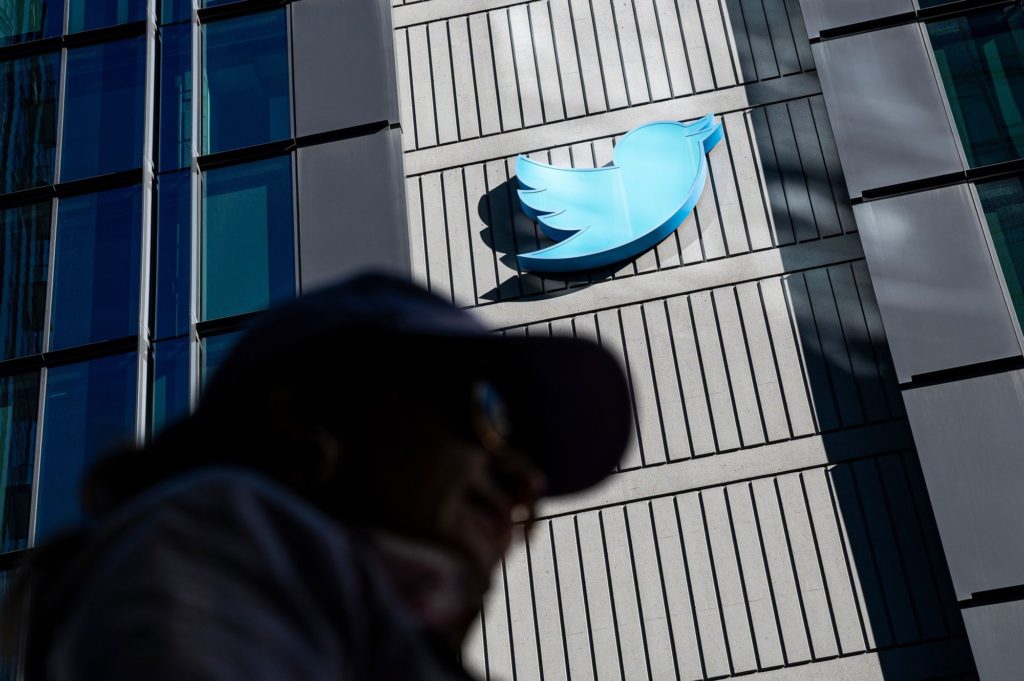Elon Musk’s sudden policy change barring users from promoting other social media accounts drew concern that the move was anticompetitive and would violate European Union rules. In the end, Twitter is probably too small to matter.
(Bloomberg) — Elon Musk’s sudden policy change barring users from promoting other social media accounts drew concern that the move was anticompetitive and would violate European Union rules. In the end, Twitter is probably too small to matter.
“Twitter is unlikely to incur penalties in Europe,” said Tommaso Valletti, a professor at Imperial College London and the former chief economist at the European Commission. “The practice is exclusionary, which is a violation of antitrust law, but only if you are a dominant company.”
On Sunday, Twitter announced a new policy that it would take down any accounts or posts promoting alternative social media sites including Facebook, Instagram and Mastodon. The move led to users including venture capitalist Paul Graham being suspended after he tweeted a link to his Mastodon account, before the company changed course and deleted all references to the policy.
The EU has new competition rules that explicitly bar companies from self-preferencing, but Twitter might not be captured by the rules because it’s too small.
The Digital Markets Act designates companies “gatekeepers” if they have 45 million users in the EU and an annual turnover of at least €7.5 billion within the EU the past three years or an average market valuation of at least €75 billion in the previous year.
Twitter doesn’t make enough money to qualify as a gatekeeper, but pressure is building on the European Union’s executive arm, the European Commission to designate Twitter a gatekeeper following a “qualitative assessment.”
“The European Commission is objectively under pressure to designate Twitter as a gatekeeper,” said Andreas Schwab, the lead author of the DMA in the European Parliament, arguing that doing so would be easy. Twitter likely meets the user threshold.
Damien Geradin, a competition lawyer in Brussels, said that Musk’s policy change would likely increase the pressure on the commission to act. “Musk is not doing the company any favors,” he said.
Read More: Musk Faces European Anger Over Twitter Ban of Journalists
Cristina Caffarra, a managing partner and head of consulting group Keystone Europe, said that all of these solutions take time — likely years — whether the commission tries to hit Twitter with an antitrust case or designate the company a gatekeeper, leaving “plenty of time for the bluebird to wriggle away.”
Musk will more likely run into issues with another European law, the Digital Services Act, as “Twitter is posing a risk for free speech,” Schwab said. Musk’s changes over the weekend likely violated requirements for companies to make changes to terms and services clear for users, lay them out all in all EU languages and maintain media plurality. But the DSA and DMA won’t go into effect until next year at the earliest.
Christel Schaldemose, the lead author of the DSA in the parliament, said the best thing the EU can do is prepare to enforce DMA and DSA when they are applicable. “Would it have been better if the DSA was in force now? Yes certainly. But it also proves that the new DSA, DMA regime is needed,” she said.
US antitrust enforcers will also face challenges bringing Musk to task for his actions at Twitter, experts said.
The Federal Trade Commission alleged in its 2020 antitrust complaint against Facebook – now renamed Meta Platforms Inc. – that the social media giant violated antitrust law when it blocked access to its platform for several rivals, including Twitter’s now-defunct video service Vine.
The agency, and a group of states that filed a similar antitrust suit, alleged that Facebook’s actions to cut competitors’ access was part of a pattern of conduct intended to maintain its dominance in social networking. A federal judge dismissed that part of the cases in 2021, though the states are appealing.
US courts have made it difficult to bring antitrust cases that seek to challenge when a company decides not to work with a rival, said Charlotte Slaiman, competition policy director at tech advocacy group Public Knowledge.
The FTC could pursue such conduct through a little-used section of its founding statute to challenge unfair methods of competition, she said.
Any case challenging Twitter’s denial of access would need to show the platform has market power – a particularly “tricky question,” Slaiman said, as the site loses more users. Still, the fact that Twitter cut off access to rivals as users fled the platform would be key to a case.
“It would matter that it took place at this crucial moment,” said Slaiman, a former FTC attorney. “We definitely see with social media that there are these moments when there’s a scandal, people want to leave and join a new platform.”
–With assistance from Stephanie Bodoni and Peter Chapman.
(Updates with context on US antitrust framework from 12th paragraph)
More stories like this are available on bloomberg.com
©2022 Bloomberg L.P.











